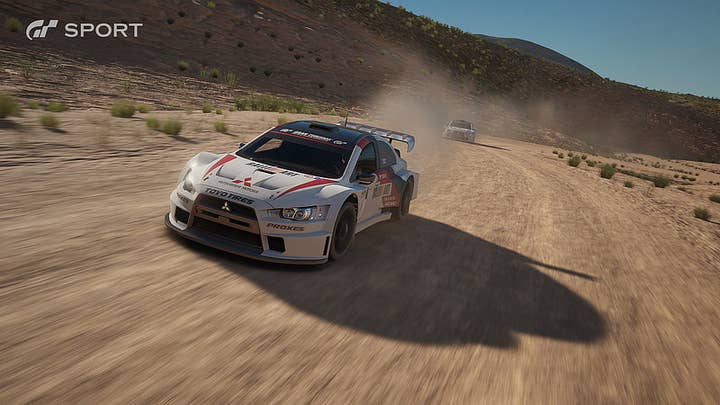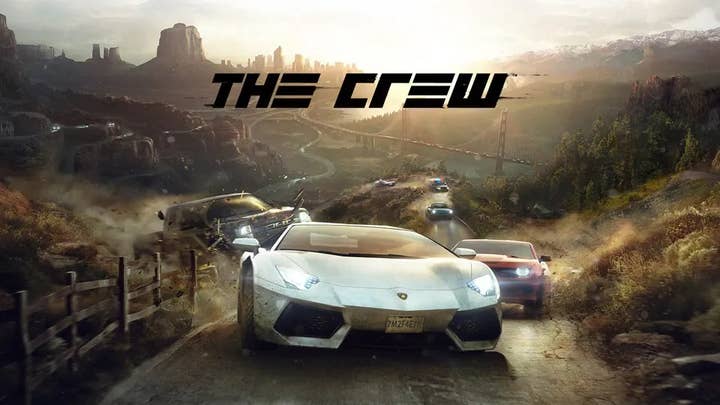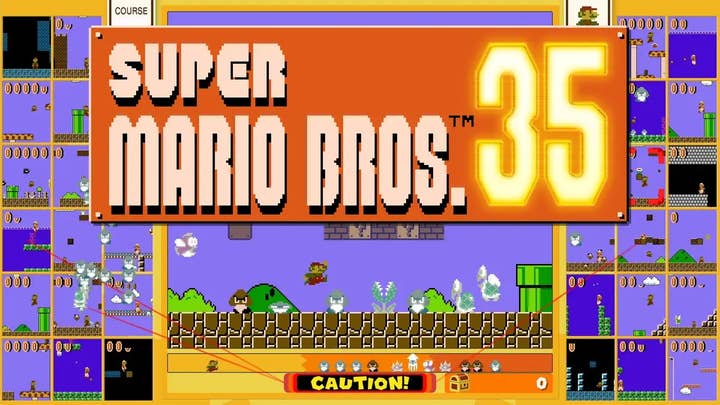Sony gives Gran Turismo Sport the boot | This Week in Business
When the servers go dark, the ability to save progress in the single-player parts of the game goes with it. How could publishers better handle sunsetting online games?
This Week in Business is our weekly recap column, a collection of stats and quotes from recent stories presented with a dash of opinion (sometimes more than a dash) and intended to shed light on various trends. Check every Friday for a new entry.
January is New Year's Resolution season, a time to reflect on ourselves and our actions, and to take steps to be better people in some small way. Maybe we make a resolution that motivates us to be more disciplined, healthier, or perhaps kinder in some way to those around us.
That sounds like a lot of hassle, so I usually don't bother.
Instead, I like to take the opportunity to make New Year's Resolutions for the industry.
I know that sounds like a jerk move to impose self-improvement on someone else like that, but I try to at least be a little fair about it by setting the bar low – like, arguably subterranean – with resolutions like "Only sell to people who want to buy" and "Let people know what it is they're buying."
If those seem like things the industry obviously already does, then I would encourage you to click through and read those pieces.
To be fair, we've made some progress on things like dark design patterns and loot boxes over the years thanks mostly to government intervention (or the threat thereof), but they still persist, and the antagonistic and anti-consumer mindset behind them still shines through in many of the industry's "best practices."
So with that in mind, let me offer a 2024 New Year's Resolution for the industry that fits right in with the theme: Don't design things to break.
It doesn't sound like something that should be a problem, right? Things do break, yes. That's kind of a fact of life. And games are incredibly complicated things, each one just one inspired speedrunner away from being exposed as the movie set facade it really is.
But that's not what I'm talking about here. I'm talking about a game like the PS4-exclusive Gran Turismo Sport, for which Sony is shutting down the online servers on January 31.

That's no big deal, right? It's a nearly seven-year-old game on a legacy system. Servers go down all the time. It costs money to keep them up and it's not realistic to expect companies to shell out money forever just so a handful of players can keep racing against one another.
(You'd think the monthly subscription fee people are required to pay Sony specifically for the privilege of online multiplayer would help make such a thing more realistic, especially when Sony just recently hiked those fees through the roof, but that's beside the point of this article so let's just concede that it's not realistic at all for mysteriously valid reasons.)
But online multiplayer isn't what I'm talking about here, because Gran Turismo Sport relies on those servers for a lot more than multiplayer.
Even though Gran Turismo Sport has single-player Campaign and Arcade modes, once the servers go down, they're going to lose a lot of their usefulness because Sony made some basic functionality dependent on having an online connection. Players won't be able to buy new cars, take the game's driving tests, use the photo mode, or even save their progress, which is one of those features people started to assume games just naturally had around the time of the Super Nintendo.
In recognition that the product being sold will be imminently gutted to the point of irrelevance, Sony has at least removed Gran Turismo Sport from the online PlayStation Store.
QUOTE | "INTERNET REQUIRED FOR MOST FUNCTIONALITY" – The cover of the physical version of Gran Turismo Sport, which as of this writing remains available at Walmart, Best Buy, Amazon, and other retailers for some reason.
(On a side note, server shutdowns of this sort should be accompanied by recalls of any remaining physical copies at retailers. It's either a small enough number of copies that the recall shouldn't be a significant expense, or a large enough number of copies that retail partners and consumers shouldn't be stuck holding the bag because the publisher decided to pull the plug.)

And even though Sony announced the end of online services for Gran Turismo Sport last September, its announcement wasn't exactly clear about the extent to which the game is being rendered obsolete.
QUOTE | "After the end of service date, it will no longer be possible to utilize online services such as the Community, Open Lobby, and Sport Mode, nor online features/items such as custom liveries. The offline portions of the game can still be played, including purchased Add-Ons." – Sony's official notice about Gran Turismo Sport's server's being taken down.
Since there's nothing in there about the online saves and other features, I asked our Sony contacts for confirmation on the details multiple times, but received no answer. I also emailed PlayStation support, but received no answer.
The reader who first flagged this for me in early November did eventually get a response about a month later from PlayStation Support that mentioned a patch for the game, but didn't specify what it would do or whether that patch would allow for offline saves and expose the requirement as unnecessary in the first place. After all, that's what EA did with the always-online SimCity, even after insisting that a constant connection was a fundamental part of the creative vision and not just the willful undermining of the user experience in order to thwart piracy. (Surprising nobody, we would later learn that creative vision driving the project really was just "a game people couldn't pirate.")
But maybe Sony's Gran Turismo Sport patch will do right by players. After all, when Sucker Punch pulled down a real-world website that was necessary for finishing Infamous: Second Son's Paper Trail DLC, it took steps to permanently future-proof the game for the players of tomorrow, and told players about it in a blog post.

Yes, that's a broken link where the reference image to help you crack the case in no time is supposed to go, helpfully underscoring that nothing online is reliably permanent.
[Update]: After the publication of this article, Sony reached out to say it has fixed the broken link image on the Sucker Punch website. Hooray, we made a difference![/Update]
I understand that this is small potatoes for most people. Gran Turismo Sport servers going down is an annoyance that most players will never even notice, having long since moved on to new games and new systems and having no real interest in revisiting the single-player component of an online-focused racing game from nearly seven years ago.
But I hate it when companies design dependencies into their games knowing they're one day going to break and leave paying customers with no way to enjoy the thing they paid for. And not because the thing in question fundamentally can't exist without an online connection, but because someone decided to design the thing to break as soon as it was convenient for the company.
Take the recent swath of 1,300 Discovery titles that Sony planned to remove from paying customers' video libraries. The fact that Sony struck a new licensing deal when people complained doesn't fix the problem; it just means Sony has kicked the can about 30 months down the road, at which point it can try pulling them again to see if it gets less bad press.
But sooner or later, that deal will end and Sony will essentially steal those shows back from the people who paid for them not knowing this was a possible outcome. Because intentionally or not, the deal was designed from the start to do just that.
Please do not refer me to Sony's terms of service as a defence of this. Sony's terms of service also say you can't re-sell disc-based games but that certainly wouldn't excuse them enforcing it. (Interestingly, this has been in Sony's terms of service for more than a decade, going right back to the time when they were gleefully dunking on Microsoft for the Xbox One's planned second-hand game restrictions.)
In some ways, designing critical functionality of your game to require an online connection is actually worse than selling people TV shows you're just going to take away when a licensing deal lapses. Whatever Sony does or doesn't do, there can be other ways to see such fine programming as… [checks the full list of 1,300 Discovery shows on PlayStation]…uh, Dr. Pimple Popper, Wives With Knives, and I Catfished My Kids. But when Sony decides to shut down the servers for a Sony game, there's no other place to get that same experience.

It's one thing to do this when the nature of the game itself is online. I'm not too bothered about World of Warcraft having no offline mode, even though I think an offline tourism mode for Azeroth would still be pretty cool.
But taking traditionally offline, single-player things and unnecessarily tethering them to servers you know damn well are going to be shut down in a matter of years is a different matter, a choice that says the game itself is disposable and replaceable, not meaningful in a way worth preserving. It's cultural vandalism.
It's also potentially criminal, depending on where you live.
France explicitly outlawed the practice of artificially shortening a product's lifespan to move people to a newer product years ago, and Quebec passed its own such law last October. So far France has focused enforcement more on smartphones and printers than software, but closing servers for old games has a similar effect on the people still playing them. As for Quebec, the language of its law explicitly covers video game consoles, and reasonably should cover games as well.
Pushing people to buy newer versions of games might not be the primary motivation of publishers that insist on things like online saves. Maybe they do it to track everything the player does online to better engage and monetize them. Maybe they do it to prevent cheaters, or maybe they do it because there are perverse legal incentives to design products to eventually break.
QUOTE | "What can game developers do to ensure that they have access to [US Digital Millennium Copyright Act] protection? One option would be to use anti-cheat software that controls not only access to the online elements of the game, but to the offline elements as well (aspects of the game that are stored locally on the player's computer when downloading the software)." – In a guest column on developers' efforts to crack down on cheating this week, Andrew Velzen and Jake Lee of intellectual property law firm MBHB note that publishers may design their games to break and become obsolete one day simply to make it easier to sue people.
Whatever their motivation may be, it's kind of irrelevant because the actual effect on customers is the same.
If you look through message boards and forum threads about Gran Turismo Sport being pulled from the PlayStation Store, you'll find plenty of people either comparing Sport favorably to 2022's Gran Turismo 7 (showing Sony is taking away their ability to play a preferred product), or weighing whether or not to jump to Sony's successor because they would still like to have a Gran Turismo experience.
Sometimes companies are pretty explicit about driving people to their new stuff even as they shut down the old stuff.
QUOTE | "Closing the online services for some older games allows us to focus our resources on delivering great experiences for players who are playing newer or more popular titles." [Bizarre emphasis in original] – Ubisoft, recently announcing that it is shutting down servers on the 2014 racing game The Crew, which has a single-player campaign but still requires a constant online connection to play. The servers are scheduled to go dark on March 31.
Ubisoft didn't specify which newer titles it is focusing on, but oh hey, it just released The Crew Motorfest last September. Ubisoft pulled the original Crew from digital shelves in December because it fundamentally understands people don't want to buy something that's just going to break on them, but much like Sony, it hasn't bothered to have retail partners like Walmart and Amazon stop selling the doomed game to unsuspecting customers.

We asked Ubisoft about The Crew's servers and planned obsolescence, and a representative pointed out a different Ubisoft announcement about the issue that gave a different explanation for the game's demise.
QUOTE | "We understand this may be disappointing for players still enjoying the game, but it has become a necessity due to upcoming server infrastructure and licensing constraints." - Ubisoft in a December blog post announcing the shut down.
I'm no expert on server infrastructure constraints, but I suspect Ubisoft could figure out a way to continue running The Crew servers if it were so inclined. Maybe it's pricey, maybe it's a headache, but surely it's a matter of the company prioritizing a whole bunch of things over its desire to keep supporting The Crew.
As for licensing constraints, yes, those are real. And my answer would be to strike licensing deals for your games-as-a-service title that allow you to extend the deal for the life of the game with minimal financial hardship, or even better, design your game so it doesn't need you to be constantly running servers for it to exist. I mean, it's not like The Crew is doing anything that really 100% needs the online connection, right?
QUOTE | "My first thought was, 'Welp, this is pretty much what I imagined when I pictured a Next-Gen Racing Game.' My second thought was, 'This has got to be relying on cloud computing or something.' And yet, when I asked one of the game's producers during my hands-on session, he assured me that the whole game played off the disk." - In a 2013 E3 preview of The Crew, Kotaku's Kirk Hamilton confirms The Crew's always-online mandate was a choice more than a requirement.
Let's stick with that Kotaku article for a second because Hamilton did a good job with the follow-up questions.
QUOTE "I asked [The Crew creative director Julian Gerighty] what would happen if someone was playing the game and their internet went down. 'They won't be able to save the game, unfortunately,' he said. 'All our saves are server-based, it's one of those things that this new generation… it's just like World of Warcraft. If the internet connection goes on World of Warcraft, that's it, your saved game goes. It's one of the unfortunate side-effects, but I think [we're] going to a world where the experiences demand that.'"
Hamilton stuck with it a bit further, asking if next-gen experiences really did demand the always-online connection, noting similar games that adopted unnecessary always-online policies over player pushback.
QUOTE | "'People got used to it on World of Warcraft, people got used to it on MMOs,' Gerighty said. He emphasized that the single-player story can be played all by yourself… as long as you have an internet connection. 'It just becomes that much more interesting if you're connected, and the world around you is living, with other drivers and potential encounters.'"- The last bit of that Kotaku article we'll quote here.
Sure, an online game might be more interesting, but I would gladly take having the option of connecting to that more interesting world to start with, and then having a less interesting world still available to me down the line when the publisher decides server infrastructure and licensing constraints aren't worth dealing with. And I suspect most people who paid good money for The Crew would agree with me on that point now. But that's not possible because a decade ago, Ubisoft was more focused on what their customers would get used to rather than what their customers actually wanted.
Ubisoft has also added always-online requirements to other games that are perfectly playable solo like The Division and The Division 2. Both of those still have their servers up and running, but with The Division 3 in the works now and Ubisoft having an interest in moving people over to that game when it launches, it's very likely older games like those will be deleted from the world so Ubisoft can focus its resources on making you buy new stuff instead of enjoying stuff you already paid for. And if you really want to play the old stuff, well, they can remaster and sell you the old stuff again if they think there's enough money in it.
This gets to another one of the things that frustrates me about companies tying basic functionality to online connections in a way that pushes people to buy newer games: it's absolutely unnecessary. Game companies don't need to take the creative work that hundreds of people spent years of their lives putting together and relegate it to the Phantom Zone. People will pay to play the old stuff in a new way even when the old stuff works perfectly well and is just sitting in their closet. That's like half of Naughty Dog's business model!
And I still have an NES cartridge of Super Mario Bros that works fine, but that hasn't stopped me from paying for different versions of the game in a dozen ways over the years. Nobody is better at pulling off the old Malibu-Stacy-with-a-new-hat trick than Nintendo, and it hasn't had to rob unsuspecting customers of functionality in order to make it happen. Such an idea would actually be antithetical to the company's way of doing business during the time when it was laying down the foundations of the nostalgia it so richly profits from these days.
QUOTE | "As a consumer you want to be able to keep those things for a long time and have those things from your youth that you can go back to and experience again. I really want to retain that product nature of the games that we create so that people can do that and have that experience. To me that's something that's very important about entertainment itself." – Shigeru Miyamoto describes Nintendo's view of games in a 2013 interview.
Unfortunately, Nintendo's philosophy has apparently changed a little on this front over the years. Take Super Mario Bros 35 for example. The online battle royale take on the NES classic launched in October of 2020, and was shut down six months later, rendering it unplayable.

I don't like Nintendo's decision to shelve the game because it re-enforces the idea of games not as unique creative works but as things that are disposable and interchangeable. Others don't like it because they just really loved Super Mario Bros. 35. But it's not exactly the same situation as we have with Gran Turismo Sport and The Crew for a few reasons.
First, while the racing games substantially supported solo play, Super Mario Bros. 35 really only existed as an online multiplayer experience. Also, it was free. Well, "free." It was a bonus for Nintendo Switch Online subscribers that they didn't need to pay extra for. And its demise can't be seen as a way to usher people to buying a replacement because I haven't seen Nintendo taking preorders on Super Mario Bros. 36.
And perhaps the most important difference is that Nintendo was very clear about the game's impending demise in its birth announcement.
QUOTE | "Super Mario Bros 35 launches October 1 as a digital-only title, and will be available for a limited time, until March 31, 2021." – The voiceover in the Nintendo Direct trailer for Super Mario Bros 35 details the server shutdown date all of 38 seconds after the title card revealed the game's existence.
I don't expect every company to know the exact date of a game's shutdown when they launch it, but I think it's a fair thing to ask that they give customers a worst case scenario of how soon the thing they're buying could vanish into the ether. Give them a length-of-service commitment, a guarantee that – barring the company going out of business – it will keep the servers up and running for five years, ten years, why not 15 years? It doesn't matter how long the commitment is so much it is clearly communicated on the packaging, and on every store page the game has.
I would ask for it to be included in the marketing as well, but as we recently saw with loot box labelling requirements, the industry would probably agree to that and then simply not do it.
I know making a commitment like that is more of a burden on free-to-play games, but honestly, if you're asking people to commit money to your game, it's fair that you be required to show them just how committed you are to keeping that game playable so they can actually enjoy their purchases.
Sure, people might have spent less in Apex Legends Mobile if EA launched it with a note saying it might get shut down in 11 months and Epic Games would have had a harder time getting people to buy Rumbleverse cosmetics if they knew there would be nothing to look at six months later, but at the very least people would have been able to make an informed purchasing decision.
Ah, there's that phrase again: "an informed purchasing decision." The industry loathes the idea, always has. That's actually the common denominator for all three of the New Year's Resolutions I've proposed, and it also plays into the industry's pathological aversion to transparency.
From preorders to loot boxes to virtual currency schemes that obfuscate how much anything costs, gaming has always been a little too eager to take the money of people who don't fully understand the actual deal they're making, and then to act shocked that anyone would feel misled or duped after the fact.
Let's fix that in 2024.
Ideally, we would see the industry design games with graceful degradation in mind to preserve whatever scraps of functionality possible when the servers go dark.
But failing that, I think the bare minimum publishers should do is to be upfront with consumers about how long they can expect to enjoy their "purchases" before someone else decides it's time to make them obsolete.
The rest of the week in business
QUOTE | "The era of spatial computing has arrived. Apple Vision Pro is the most advanced consumer electronics device ever created. Its revolutionary and magical user interface will redefine how we connect, create, and explore." – Apple CEO Tim Cook heralds the company's new $3,500 AR/VR headset in announcing the device's February 2 release. As for specific things it will do to justify that cost, that's still a closely guarded secret.
QUOTE | "Plaintiff asked for 'checks and balances' and made clear that Plaintiff 'was the first person to sound an alarm that a larger issue might be brewing.' Plaintiff demanded that 'all accusations should be investigated independently.' Plaintiff's complaint was ignored and he was not taken seriously." – In a lawsuit against Activision Blizzard, a former executive of the publisher and "old white guy" talks about filing a discrimination complaint with HR because another employee filed a discrimination complaint with HR against him, and simultaneously pulls off the very rare trick of making me side with Activision Blizzard HR. (This story actually went up late last week, but I could not in good conscience let it pass without comment.)
STAT | £4.74 billion – The total games industry revenue in the UK for 2023, according to UK trade organization ERA. With video-based content hitting £4.9 billion driven by subscription services like Netflix and Disney+, 2023 was the first time since 2012 that video games weren't the highest-grossing entertainment industry in the country.
STAT | 38 million – The number of video games sold in the UK in 2023, according to GSD's latest figures. That's up 2.6% over 2022.
STAT | 1,800 – Unity's latest round of layoffs is its largest yet, with the company looking to shed 1,800 people, or 25% of the entire company. This is the fourth time the company has laid off people in the past year. One. Two. Three. Four.
STAT | 500 – The number of employees Twitch is laying off this month, or 35% of staff, as yet another business struggles in its pivot to sustainability.
STAT | 400 – Playtika announced plans to layoff 10% of staff, or as many as 400 people.
STAT | 170 – Discord is planning to lay off 17% of staff, or 170 people, as reported by The Verge. CEO Jason Citron explaining in a memo to staff (and soon-to-be-ex-staff) that "we need to sharpen our focus."
QUOTE | "It's not all doom and gloom. I believe private equity will take a keen interest in the gaming sector and will make some big acquisitions following Savvy acquiring Scopely and Sega acquiring Rovio." – In a round-up of predictions from people across the industry, Riot Games' Jake Perlman-Garr offers a compelling argument that it is all doom and gloom.
QUOTE | "When you look at Steam some days, there are 50 or 60 games released in one day only so it's more difficult to get enough traction to expose a game." – Nacon head of publishing Benoit Clerc says the reason we've seen so much bad news despite an industry that is growing (however modestly) is because there are "too many games."
QUOTE | "Adult Only Sexual Content that is created with Live-Generated AI" – The only type of AI-generated content Valve refuses to allow on Steam under a new, AI-friendlier policy for the storefront. For other types, it will review the games to ensure they don't include "illegal or infringing content."
Finally, I don't really have a stat or specific quote to point to here, but this annual round-up column of legal issues in games from ADVANT Beiten partner Dr. Andreas Lober is extensive, and no doubt touches on a bunch of subjects we'll want to revisit in this space in some depth as the year goes on.

